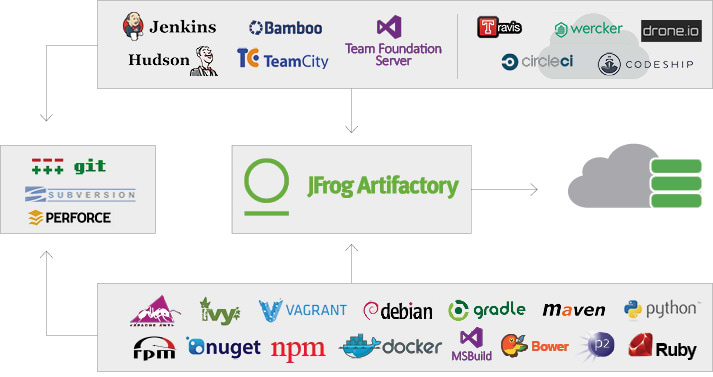Continuous Integration Systems

While it’s important to make it easy and efficient for your developers to access binary artifacts, it’s even more important for your build systems which may be running builds many times a day.
Through a set of plugins, Artifactory provides tight integration with popular CI systems available today such as Jenkins, Bamboo and TeamCity. These systems use Artifactory to supply artifacts and resolve dependencies when creating the build, and also as a target to deploy build output to the corresponding local repository.
One of the main benefits of running builds through Artifactory is fully reproducible builds. Artifactory stores exhaustive build information including specific artifact versions, modules, dependencies, system properties, environment variables, user information, timestamps and more. With this information, it is easy to faithfully reproduce a build at any time. Moreover, with built-in “Diff” tools you can compare builds and therefore know exactly what changes were introduced from one version to another. These capabilities can be invaluable when trying to track down bugs that were reported in specific versions released.
Artifactory also simplifies release management. A series of simple settings configure things like staging, build promotion, VCS tagging and more, essentially automating the release management process.
But what happens if your are using cloud-based CI systems where you can’t apply plug-ins? In that case, Artifactory provides plug-ins directly for the build tools themselves (such as Maven and Gradle), which ultimately provides the same level of build automation. Essentially, since Artifactory is platform agnostic it can be integrated with generic tools across all the build ecosystems within your organization. Finally, once your builds are automated, Artifactory will keep your system free of clutter by cleaning up old builds according to your organization’s maintenance policies.



